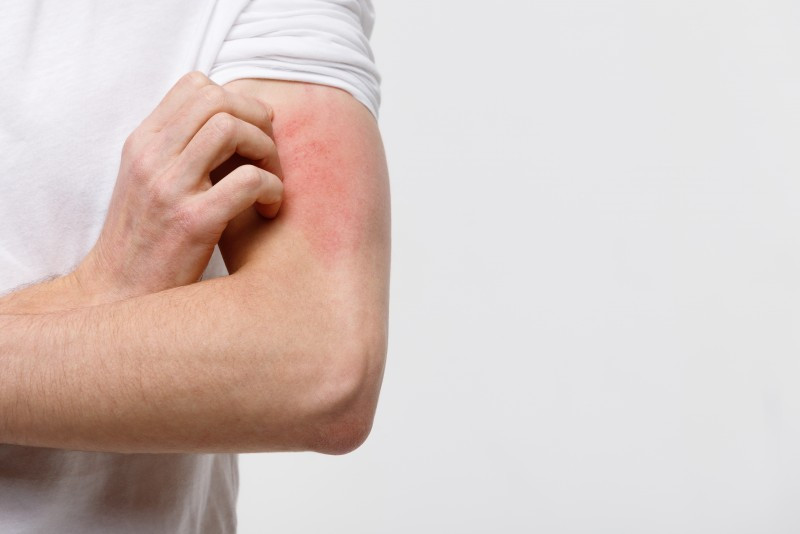If you've never heard about scabies, or maybe you did years ago but have forgotten everything you knew about it, consider yourself enlightened. This is the blog in which we tell you a few things about scabies and what you can do to treat it and, with any good fortune, make it go away as quickly as possible. Why is that important? If and whenever you catch a case of scabies - with its aggravating symptoms that include itching, intense pain, redness, and rashes -- you'll be happy to see it make a hasty departure (hopefully)
Another thing about scabies; it is contagious, easily transmissible from one person to another. So, once again, we find ourselves faced with the prospect of social distancing when coming face to face with a victim, this time one with scabies. It can spread fast from one person to the next, making it a real problem in places like nursing homes, prisons, and child-care facilities, where many people are confined to a relatively cozy location, with potential outbreaks always a possibility.
OK, But What Exactly Is Scabies?
Good question, but you might not like the answer. It's an infestation of the skin in which tiny mites - we're talking microscopic tiny (the Sarcoptes scabiei var hominis mite) - burrow into the upper layer of your skin, where it takes up residence and eventually lays eggs. Soon symptoms such as an intense itch and a skin rash show up resembling acne, complete with reddish pimples.
The prolonged contact between humans - such as moms caring for their babies, or use your imagination for other closeknit scenarios - provides the environment for a mite to move from one body to the other. Scabies is also an equal-opportunity affliction: It is found worldwide and knows no prejudice when it comes to people - all races and social classes are vulnerable.
Four Supplements to Treat Scabies
Like with almost all health conditions, there are natural remedies - in this case herbs and/or supplements - that can help alleviate the symptoms and perhaps hasten the departure of a case of scabies. Here are four of them:
Garlic. Because it is a potent antibacterial agent, garlic has the potential to help eradicate scabies by removing the mite(s) causing the infection. Not only can it tamp down the symptoms, garlic can also work as a preventative to keep the infection from returning.
Turmeric. This popular herb is rich in anti-inflammatory and antiseptic properties that make it a natural for relieving the symptoms of scabies. Some years ago researchers working as part of a pilot study found that turmeric powder blended with neem leaves successfully treated 97 percent of more than 800 scabies patients, with all signs and symptoms disappearing within three to 15 days.
Aloe vera. Anyone who has ever gotten a sunburn likely knows firsthand about the soothing, healing benefits of aloe vera, which naturally makes this gel a worthy candidate to take the battle to scabies. A 2009 study revealed that aloe vera was as effective as benzyl benzoate, a prescription medicine, in treating this nasty affliction. https://www.healthline.com/health/home-remedies-for-scabies
Cayenne pepper. This stuff has more uses than just as a seasoning on meat or whatever other dinnertime delicacy you might wish to spice up a bit. The secret ingredient when it comes to dealing with scabies is capsaicin, which, when applied right on the skin, can curtail skin sensitivity to scabies, which in turn can reduce the scabies-related pain and itching.
As inconvenient and aggravating, and transmissible, as scabies is, there are plenty of over-the-counter natural remedies available to give a sufferer more than a fighting chance to alleviate the symptoms and perhaps even eliminate a case of scabies before it lingers too long. Of course, if you know of someone who has scabies, feel free to pass along this advice, but do so from a safe distance.

